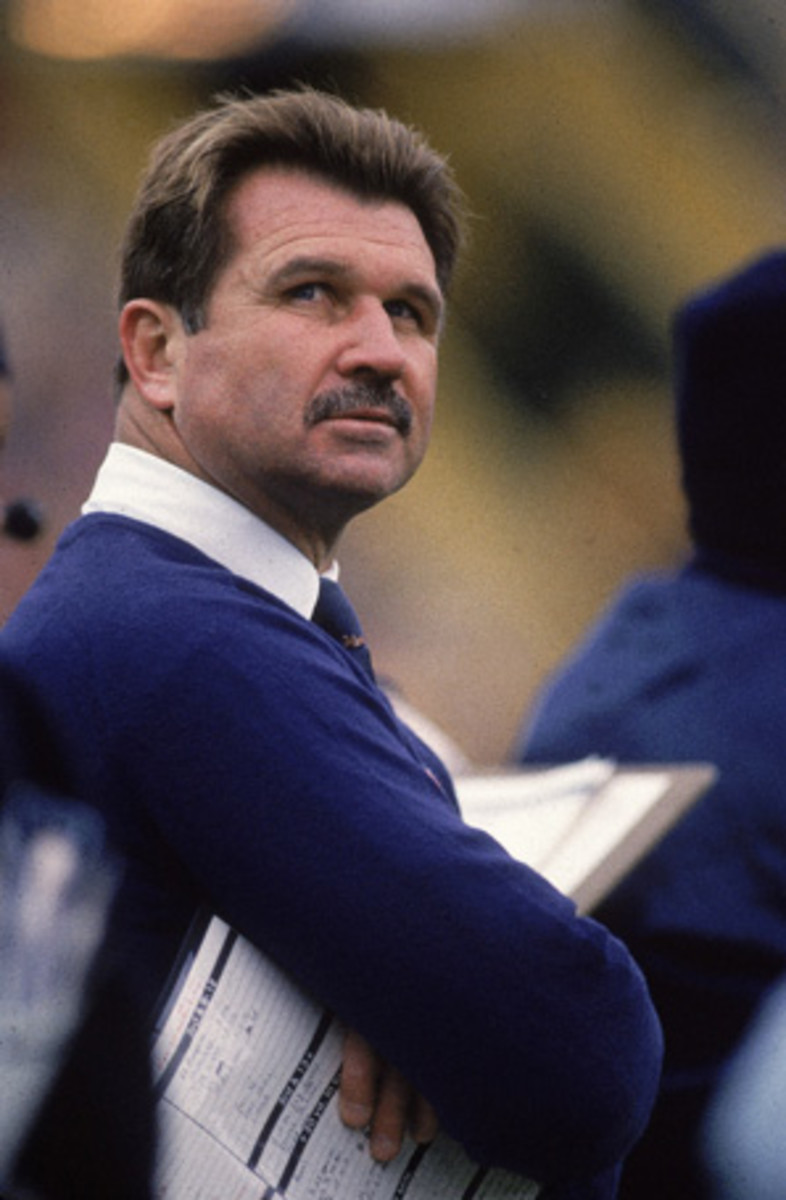
Ditka symbol of old-school loyalty that no longer exists in sports
A couple of weeks ago, as I was interviewing him for a book project, Mike Ditka looked me in the eye and began to cry.
He was talking about loyalty; about football in 2010 and how nobody who plays the game and nobody who coaches the game and nobody who owns a team exercises even the slightest bit of honor. "It's all gone," he said. "Completely gone. Replaced by selfishness and greed." The two of us were sitting at a table in Ditka's eponymous Chicago steakhouse. He chugged one cup of coffee after another. His eyes -- those famously scowled eyes -- moistened and morphed into the color of cherry tomatoes. One almost wanted to give him a hug. "I will never coach again," Ditka said. "I don't want to, but I wouldn't even if I did. It's not the same game that I love."
*****
A couple of days ago, Lane Kiffin looked Andrea Kremer in the eye and began to, well, I'm not exactly sure what he did. There was certainly no crying during his interview on HBO's Real Sports. No laughing or howling or swearing either. Kiffin -- straight-faced and unemotional -- simply explained to Kremer how he could rightly abandon his minions at the University of Tennessee after one season on the job. "I never once told any of those players I would be there forever," the new USC football coach said. "I never made the statement 'I'm coming here, this is my dream, job, I'm never leaving.' I never made those statements."
"Do you think that made them feel better?" Kremer asked.
"No," Kiffin said, "but as they get older they understand it. It's why they put buyouts in contracts."
*****
As I watched Kiffin, I thought of Ditka. But not in a healthy way. It's sort of like dieting, when you're munching on a scrawny carrot stick, trying to imagine a thick, scrumptious piece of chocolate cake.
In this case, Kiffin is the scrawny carrot stick.
He did the Real Sports interview, you can be certain, at the behest of USC's media relations department, which certainly recognizes that public opinion is not on the Trojans' side. So Kiffin talked. And talked. And talked. He talked about his wife and his father and Al Davis and his longtime love of football. He actually came off as a relatively nice -- if not overly obsessive -- guy. If nothing else, you could certainly see why parents feel charmed when he enters their living room.
And yet, were my child of age and good enough to play Division I college football, I would just as soon encourage him to attend USC and play for Lane Kiffin as I would instruct him to eat a bushel of unwashed cassava leaves.
During his 11 years leading the Chicago Bears, Ditka knew what it meant to fight for more than wins and losses. If Jerry Vainisi, the team's general manager from 1982-86, made a personnel move Ditka opposed, the coach would inevitably knock on his door, get in his face and demand an explanation. He stood up to the media when he thought his men were wronged, called players out when they failed to put in maximum effort (Has anyone seen James Scott or Noah Jackson lately?), ripped into himself when it was clear that he screwed up.
The very idea of Ditka uttering words akin to "It's why they put buyouts in contracts" is beyond ludicrous. But, then again, so is the moral code of the modern college and professional coach. When Ditka roamed the sidelines of Soldier Field, he considered himself to be a Bear and only a Bear. He wasn't looking for the next job, for the next offer; for the next sweet gig. Neither, for that matter, were old professionals like Don Shula and Tom Landry, Tom Osborne and Barry Switzer, John Gagliardi and Tubby Raymond. The sweater you wore during games meant something, because the colors and team logo were emblematic of what you were trying to build. To leave, especially without fulfilling many goals, was unheard of.
But now, in the Era of Me, Kiffin has followed the hackneyed lead of his 21st Century coaching role models -- the John Caliparis and Larry Browns and Bill Parcellses of the sporting world. Yes, the kids matter. But not nearly as much as the coach matters. His word is his bond, until words like "guaranteed money" and "merchandising deal" and "your own TV show" woo from elsewhere. He can justify his decisions not because they were righteous, but because they were right ...
... for him.





